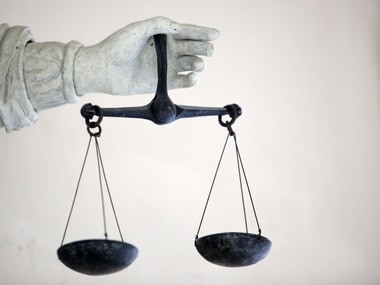The Madras High Court recently discharged a lawyer from a criminal case and opined in para 31 of the judgement that appearing for a Maoist is not a crime rather if a Maoist accused of an offence seeks the professional assistance of a lawyer, it is the lawyer’s duty to defend. [caption id=“attachment_5277431” align=“alignleft” width=“380”]  Justice cannot be selective. Reuters[/caption] This posits a fundamental question – should lawyers be guided by ethical values and notions of justice while selecting to represent any client? The rule that is to be followed by lawyers in common law jurisdictions for this is the ‘Cab Rank rule’. This rule simply put states that a lawyer cannot deny any person legal assistance who approaches him or her. The logic underlying this rule is that the services of a lawyer should be akin to that of a carriage driver at the head of a queue of taxicabs who is supposed to take the first passenger requesting a ride. Therefore, just as taxi cabs have to pick up the first customer who approach them, such that the next cab can pick up the next customer and keep the procession going, a lawyer is mandated as an ‘officer of the court’ to defend the client who approaches him for legal assistance. This is done to keep the system intact wherein the access to the court of law is not denied to any person. In India, the “Cab Rank Rule’ finds its mention in Chapter II, Part VI of the Bar Council of India Rules. The cab rank rule forms a part of the rule of law as every person has a right to be represented by a lawyer in the court of law. This right to be represented is quintessential to the legal system and has taken various forms over the years like the right to free legal aid to people with financial difficulties. In that respect, the court has even gone on to say that the failure of the State to provide legal aid would lead to the vitiation of the trial as it leads to inadequate representation. The only rider to this rule is when the advocate is aware of the individuals’ moral turpitude and guilt in the crime without any real ground of defence. The inherent logic behind providing representation to every person is to safeguard the legal system. Every person is presumed innocent until proven guilty. If a person is not provided with legal representation and is not allowed to present his case in the court of law, then his right to fair hearing suffers and thus the pristine system suffers a fall. This is not to say that terrorists who have committed the most depraved acts against mankind, should not suffer the punishment that is provided by law at the time in force. If the court finds the person guilty, then according to the due process of law, the requisite punishment should be imposed. But, to send them straight to the gallows without providing them the chance to present their case, will be a slap on the face of our legal system which has to treat everyone as an equal and is duty bound not to be discriminatory or act arbitrarily against anyone. What can be done is that the time of the trial should be expedited and not unnecessarily prolonged. But, within that timeframe, what is to be ensured is that the person facing trial should be provided with the right to put forth his case and thereafter adjudicate accordingly. Finally, the words of the legal luminary, Ram Jethmalani should be revisited. In an interview to CNN-IBN, he stated - “I decide according to my conscience who to defend. A lawyer who refuses to defend a person on the ground that people believe him to be guilty is himself guilty of professional misconduct.” Indeed, the refusal of a lawyer to represent a client is an indication of his failure to discharge his duty as an officer of the court. Raghav Pandey is an assistant professor of Law at Maharashtra National Law University, Mumbai and Neelabh Bist is a Fourth Year student of Law at Maharashtra National Law University, Mumbai.
The inherent logic behind providing representation to every person is to safeguard the legal system.
Advertisement
End of Article


)

)
)
)
)
)
)
)
)



